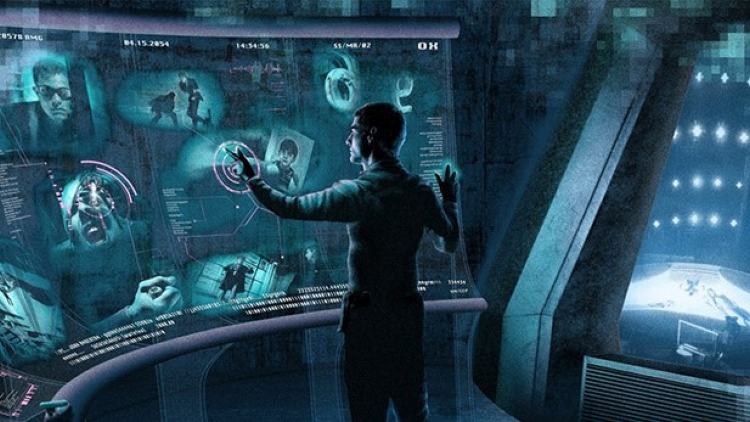The Philosophy of Minority Report
We now turn to a film which features the philosophy of free will: Minority Report (2002), starring Tom Cruise as Chief John Anderton. Anderton works for the PreCrime police. His job is to arrest people who are going to commit crimes before they act, as predicted by specialised mutated humans, ‘precogs’. So much for ‘innocent until proven guilty’ …
The film’s narrative is predicated on the thesis of determinism: that all events are causally determined by past events. Would-be criminals are arrested to prevent their crimes from occurring as opposed to just dealing with the consequences. This gets us asking how free real people are in their actions and how we should approach crime and punishment, how much moral responsibility with ascribe to people’s actions.
Could the PreCrime police’s predictive powers be achieved in real life? Well, the Universe seems to exhibit quite a lot of uncertainty when we probe it. Quantum events, for example, are indeterminate. So this is a problem. Moreover, reliable predictions about people’s actions would require extensive resources given the complexity of the human mind and our many interactions with our external environments.
Nonetheless, Minority Report may not be far away. Traditionally, justice has roots in the idea of retribution (i.e. punishment). But, in many countries today (e.g. Norway), rehabilitation is already valued highly as a means to prevent crimes.
Many philosophers also believe that there is no such thing as free will (e.g. because our actions are governed by the laws of nature). If true, punishment should cease to be a thing because people can’t be held responsible for actions that the Universe determined for them. But society would be an interesting place with no punishment per se. How would you feel seeing criminals, like Anders Breivik in his ‘humane prison’, unpunished?
As Derk Pereboom argues, if people can’t be held morally responsible for their actions, we should relinquish reactive attitudes, moving from resentment to sadness, from blame to a will to learn about others, from guilt to regret, and from gratitude to thankfulness.
Love would remain, for, in itself, it never required responsibility.
That doesn’t sound too bad, after all.

